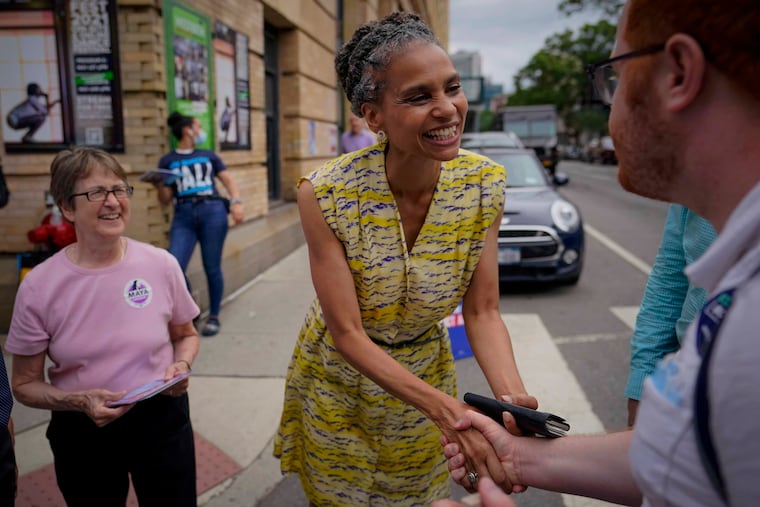Ranked choice voting is worth exploring in Philadelphia | Editorial
Ranked choice voting has been popular among New Yorkers. Bringing it to Philadelphia could help reinvigorate our local democracy.

As Philadelphians, we try to ignore New York City as much as possible, but for the last few weeks, our northern neighbor’s mayoral primary has been catching our attention.
The election introduced ranked choice voting (RCV), an electoral system where voters can “rank” a number of candidates for office, in order of preference. This system allows voters to commit to lesser-known candidates, without feeling like they are “wasting” their vote on someone who they like but believe is unlikely to win. It’s an intriguing concept, especially as many New Yorkers report enthusiasm over the new system, which aims to elect candidates who have support from a majority of voters.
Not having majority support is a recurring issue in Philadelphia, where our nominees frequently fail to reach that bar in their primaries. Elected leaders as varied as former Mayors John Street and Michael Nutter, along with incumbent District Attorney Larry Krasner, have failed to crack 40% in the primaries that initially brought them to citywide office. Democracy works best — and represents the most people — when laws are crafted by and for a majority of the electorate.
State Sen. Anthony Hardy Williams thinks RCV could transform elections in Philadelphia, encouraging more voter participation and strong candidates with diverse points of view. His legislation would allow Philadelphia to authorize ranked choice voting for municipal offices — such as mayor or district attorney — but not judicial offices.
» READ MORE: Bring Ranked Choice Voting to Philadelphia | Opinion
RCV supporters cite several advantages. One, the system ensures that voters and stakeholders feel more comfortable investigating the entire field, rather than just the candidates dubbed viable. In New York, former sanitation commissioner Kathryn Garcia had been polling in the single digits before endorsements from both the New York Times and the New York Daily News helped turn her into one of the leading contenders. She is now one of three realistic contenders for the job.
It also insulates candidates from complaints that they are “spoilers.” If every winner is elected by a majority of the voters, and every voter who wants to is able to weigh in on the final count, then no one is “spoiling the race” for anyone else.
» READ MORE: Ranked Choice Voting explained
There are downsides to RCV: Thanks to a user error from the New York Board of Elections, along with the complexity of projecting how absentee ballots will affect a ranked choice election, New York still doesn’t know who won the primary, over a week after the election. But as we saw in the 2020 presidential election, voters are capable of waiting for all ballots to be tabulated.
In order to bring RCV to Philadelphia, Harrisburg would first have to pass State Sen. Williams’ legislation authorizing its use here in the city. Then, City Council would have to authorize RCV. This is a major lift, especially with a Republican-dominated statehouse, but the benefits make it worth exploring.
Democracy is strongest when more voices are heard and more people participate. The turnout trends for Philadelphia’s municipal elections are dismal, and often our district council members are reelected without any opposition at all. We are cautiously optimistic about the potential of ranked choice voting. Even if it means taking a cue from New York.